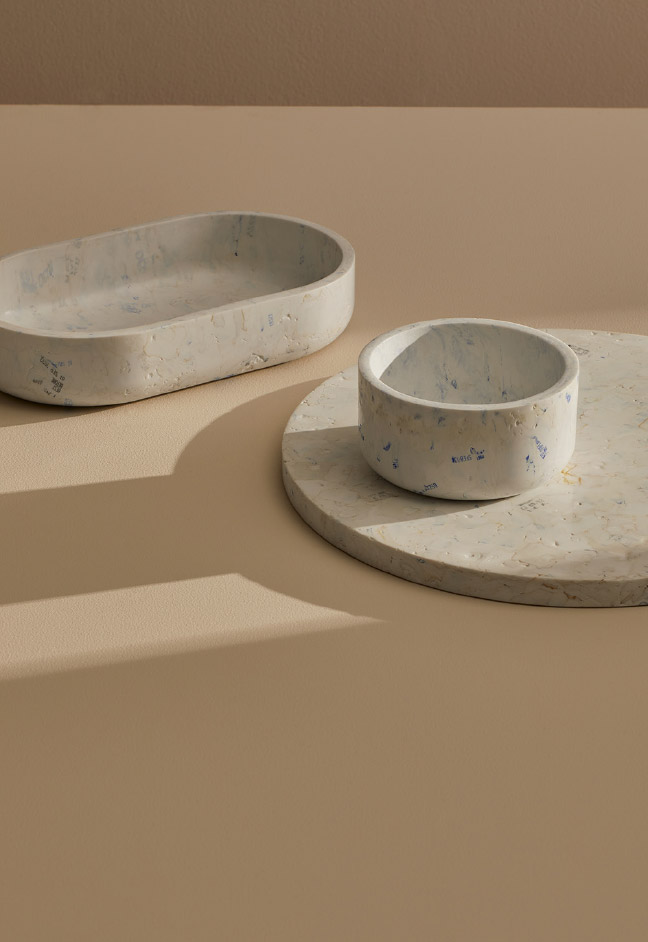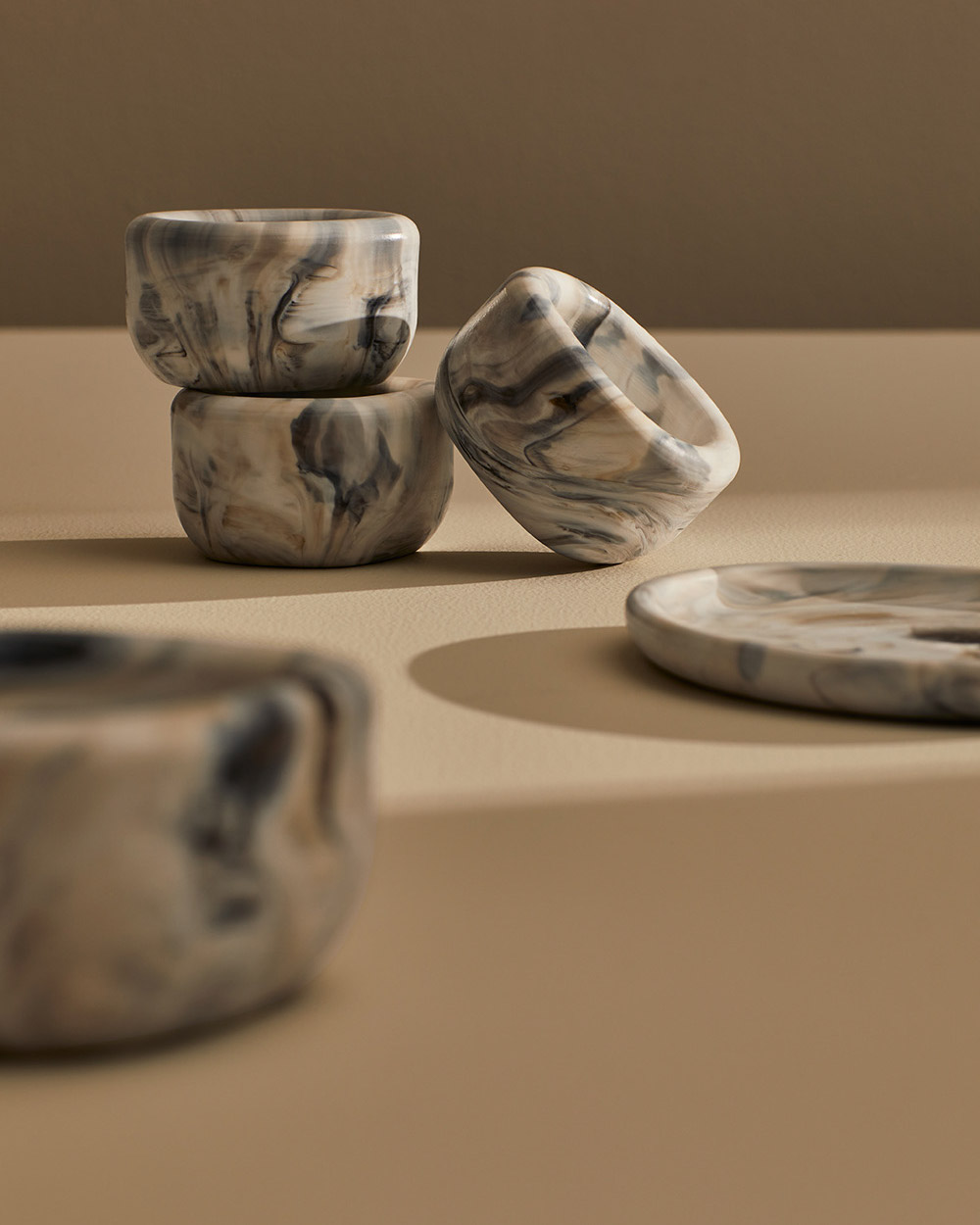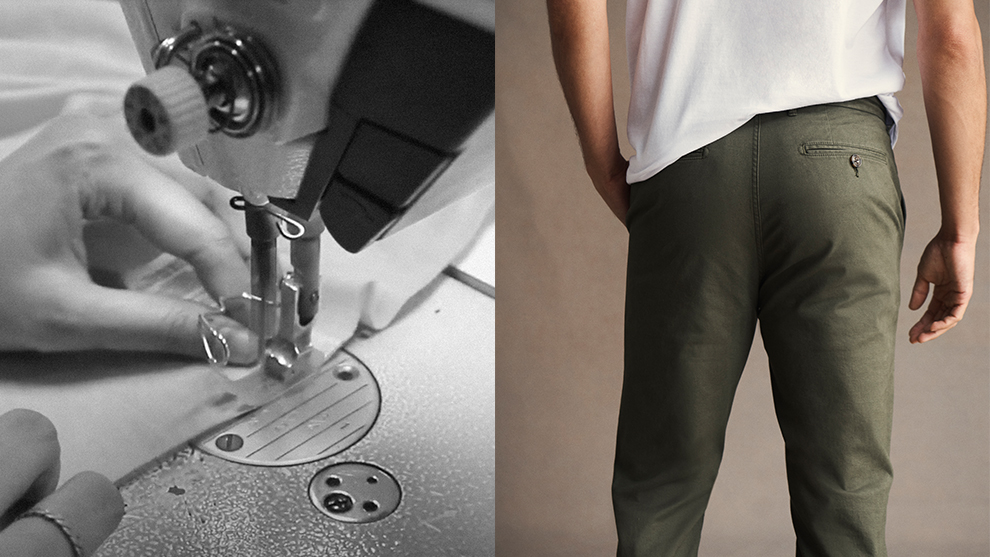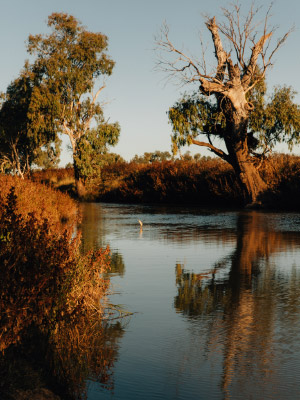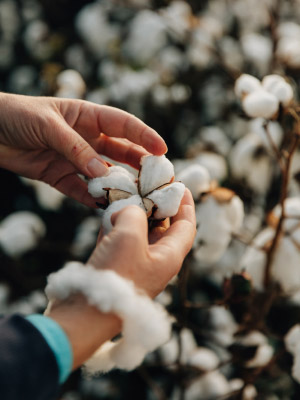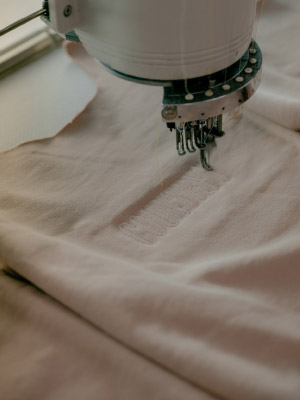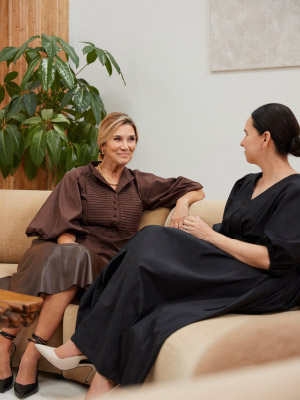Beyond Waste: Recycling Plastics into Bespoke Homewares
As part of our journey to redefining the value of waste, we’ve collaborated with two small Australian businesses to create homeware items made entirely out of recycled waste plastic. Designed by our Home team, the ranges include dishes made from plastic bottle tops and serving ware made from bread tags. Here, we take a look at the innovative processes behind the new ranges.
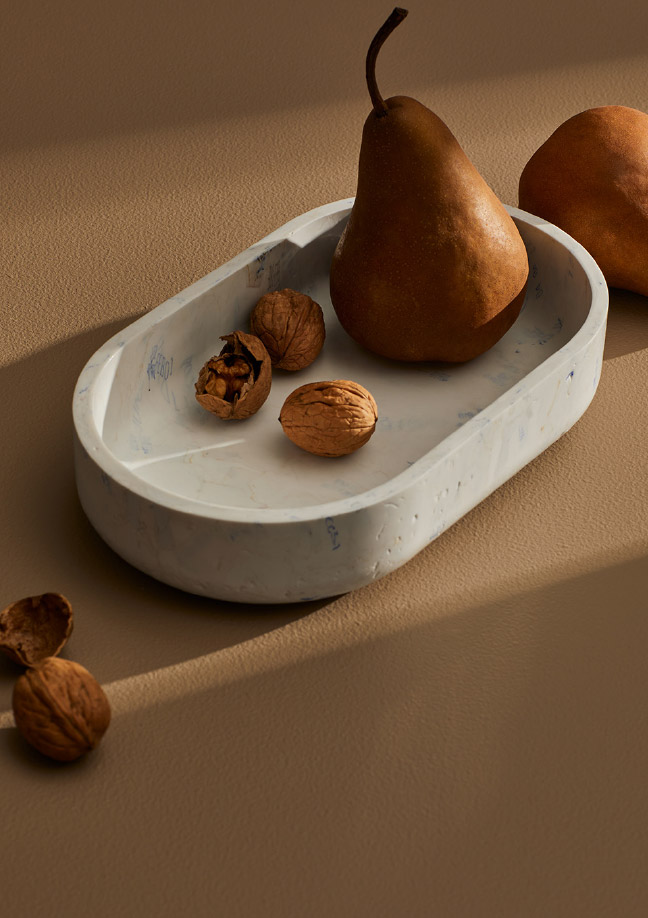
The Rooks range: Reimagining bottle tops with Precious Plastic Melbourne
Precious Plastic Melbourne co-founders Piers and Kayla Mossuto describe themselves as microrecyclers. The couple launched the business in late 2019, working with plastic bottle caps to create mainly small batch artisan items from their factory in Nunawading. Our Home team loved the marbled look of their products and commissioned two dishes and a small tray from them, working together to achieve the desired shape, form and colour.
“We start with the waste stream—plastic bottle tops (polyethylene). We use bottle tops because they come in all types of colours and polyethylene is a plastic that we can work with quite safely in an environment like this. The plastic caps are sorted by colour and type, and granulated into small flakes to melt into new valuable products.” — Piers and Kayla Mossuto, Precious Plastic Melbourne co-founders
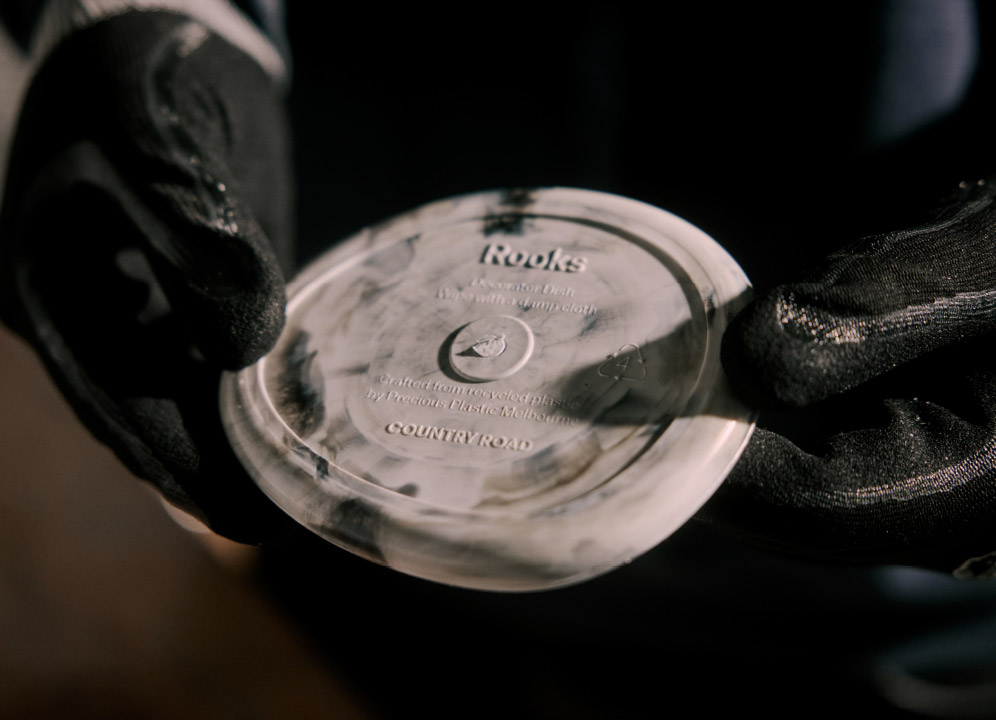
Thinking about plastic, we often think about mass produced and often unethically produced [items], but for us it’s more of a craft. It’s all very handmade and there’s a lot of time and love that goes into every piece.
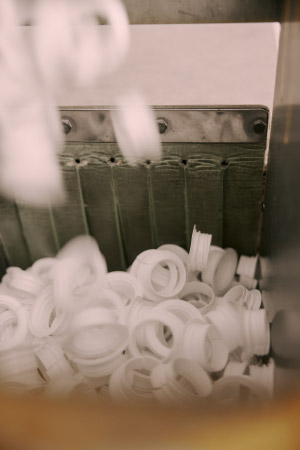
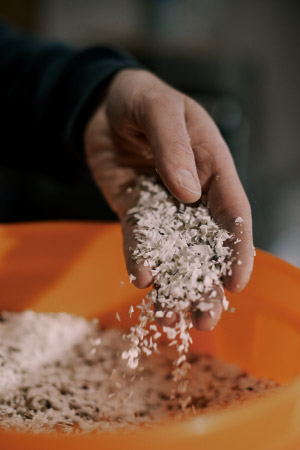
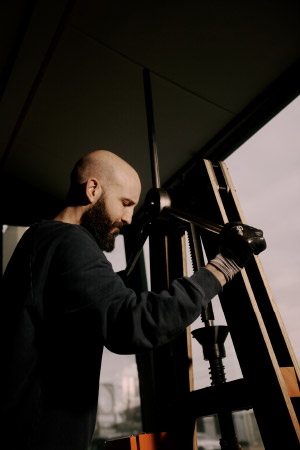
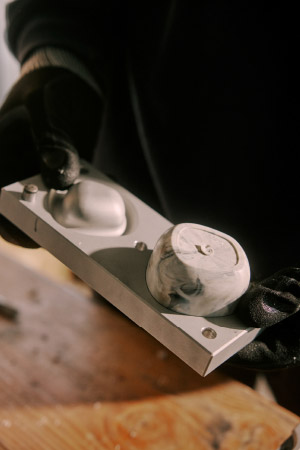
What are some of the challenges—and opportunities—when working with recycled plastic?
The biggest technical challenges are meeting customers’ expectations in regards to capabilities—working with recycled plastic can be exceptionally challenging. And the recycled plastic itself—we often don’t know the material breakdown or how it was manufactured in the first place so it’s sometimes a little bit hit and miss. For example, different colours will melt at different temperatures.
The good thing about doing everything right here in Melbourne is that we are able to work with companies that have waste streams and keep it all really local; we’re able to reduce miles, we’re tackling local waste streams right here.
“To date, we’ve recycled around four tonnes of plastic waste. That’s plastic that would have otherwise ended up in landfill, or made its way into our waterways, so we’ve been able to capture that. The whole order for Country Road has diverted 61.25 kilograms of plastic from landfill.”
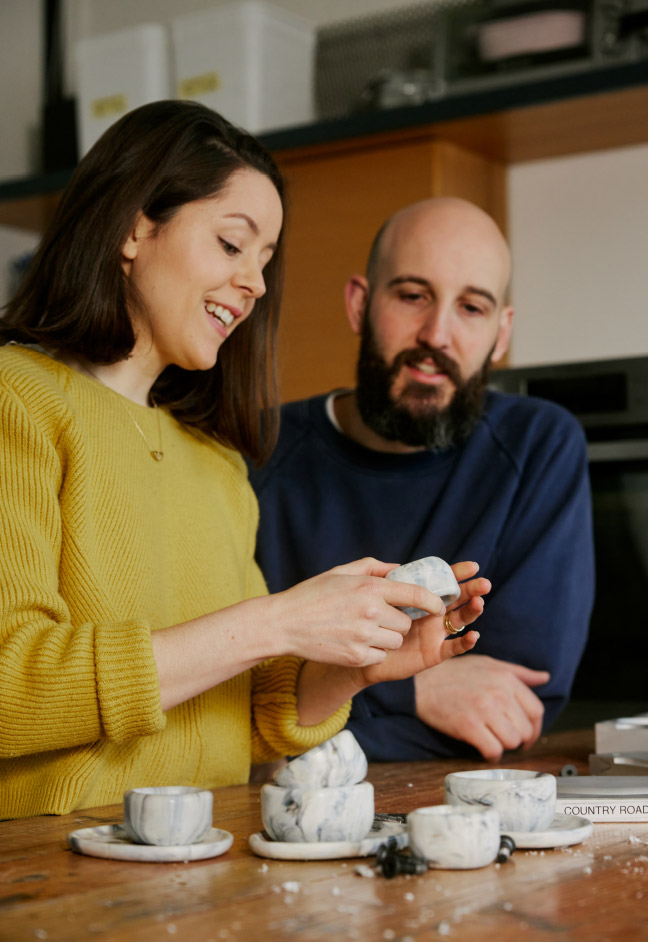
How can we all reduce waste?
One way we can all create more circular systems is to think of end-of-life. So, for designers, what’s going to happen when this product expires or is finished with its use, how can it be repurposed or reused or recycled? And obviously looking at plastic waste itself as a valuable resource; don’t look at it as single-use or rubbish, look at it as something we can use for a long time, because it certainly lasts for a long time.
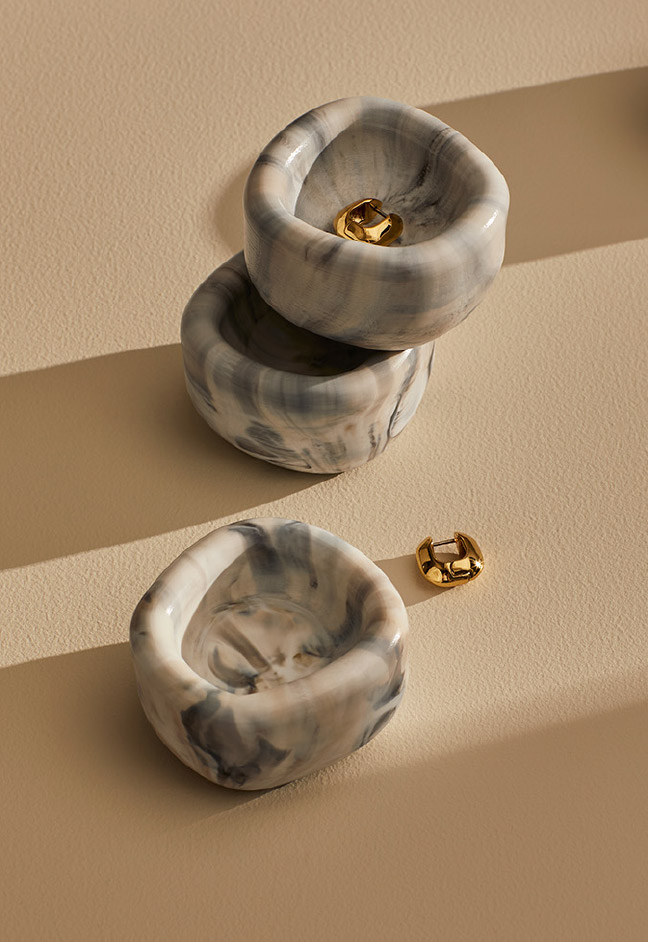
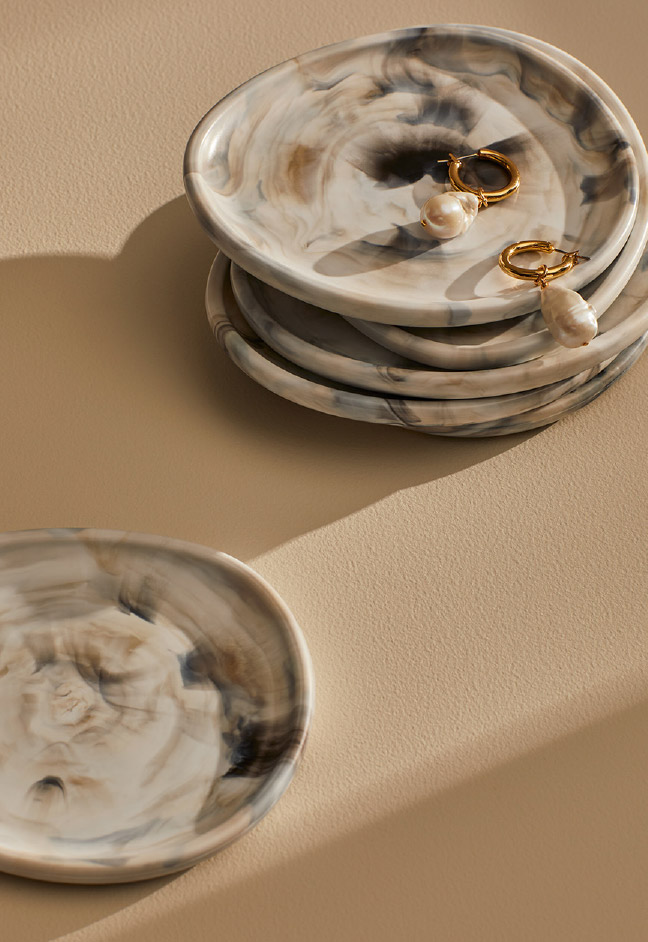
The Robe range: Rethinking bread tags with Transmutation
Based in Robe, South Australia, Brad and Narelle Scott established Transmutation in 2018. After finding how-to videos on YouTube, the husband-and-wife team built their recycling machines using old ovens and car jacks. They collaborate with charity Aussie Bread Tags for Wheelchairs to source their raw materials—plastic bread tags—which are sorted to achieve an exclusive colour for the Country Road ranges. This is the third range that Transmutation has produced for Country Road.
“We found out about Transmutation in 2018 and worked closely with them to create a beautiful limited-release bowl. It resonated so well with our community that it sold out in just two weeks.” — Bill Hadfield, Country Road designer for Home
“We receive the bread tags monthly, sorted into colours. I use my homemade machines to handcraft each item into the designed product using heat and compression methods. This manual process means that each item has the original bread tags visible in the final product and you can see the ‘use by’ dates and outline of the bread tag in the final finish. They are polished by Narelle using a lambswool buff and then sent to Country Road.” — Brad Scott, Transmutation
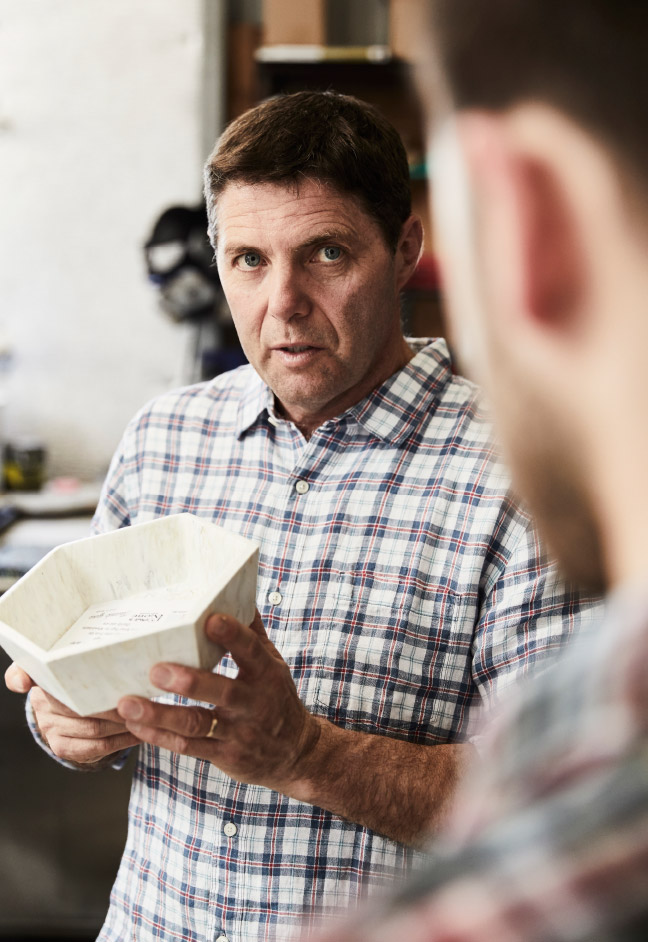
What are some of the challenges—and opportunities—when working with recycled plastic?
We did a lot of Research and Development work on getting the process right and with every new design that came from Country Road we had to work out how our mould would work. This R&D has meant that a one-man operation can turn out beautiful homewares in a volume that is acceptable to a high-end retailer like Country Road.
The main limitation when using recycled materials is any contamination that the material encounters during its first usage. If the material is relatively free from contamination, then the next challenge is collection of materials and getting them to the recycler. Without our collaborations with Aussie Bread Tags for Wheelchairs and H.F. Dicker & Son transport we couldn’t economically produce our products.
So far, we have kept more than eight tonnes of plastic out of landfill and taken out a national Small Business award. We used a total of 141 kilograms of recycled plastic to create this range for Country Road.
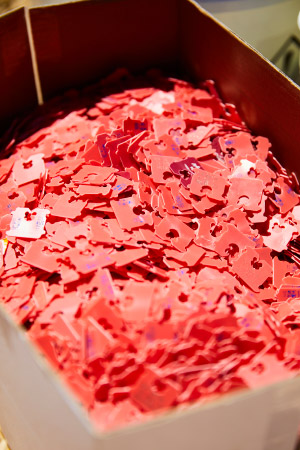
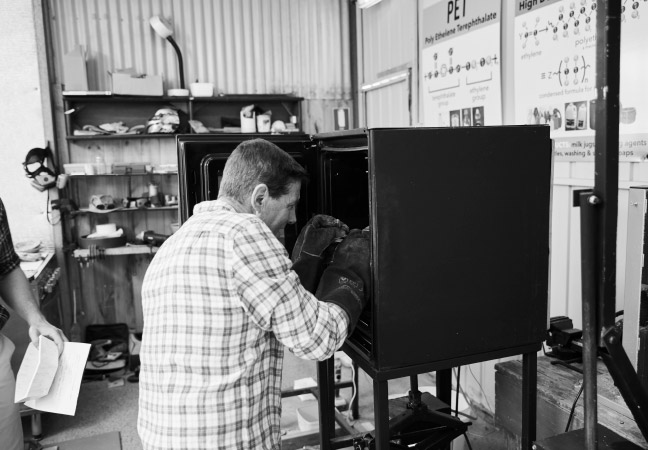
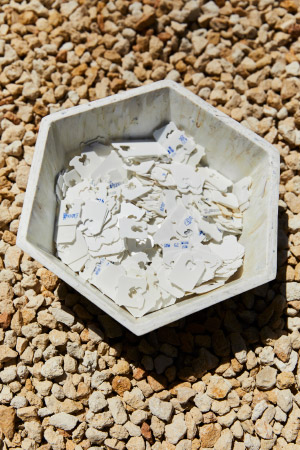
How can we all reduce waste?
A lot of people get overwhelmed when thinking about the big environmental problems we have and don’t think that they can make a difference. The best advice I can give anyone is to just do something, anything.
Whether you collect your soft plastic bags and put them in the collection bins at Coles and Woolworths or rinse your items before putting them in the recycle bin, or take reusable bags in to do your grocery shopping, you are helping.
If we all start to think about what we are buying and what will happen to it at the end of its life, we will move towards an effective circular economy.

